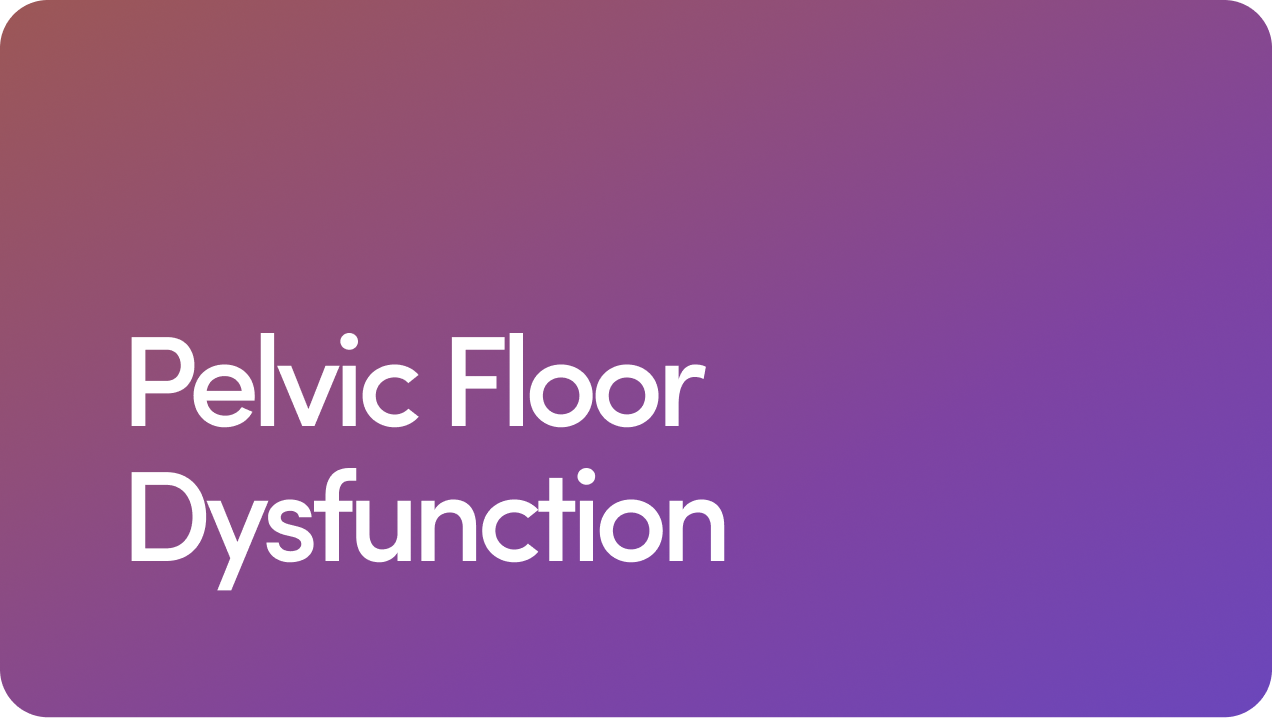Content
Be ready for sex whenever you're in the mood
How to Fix Erectile Dysfunction at Age 50: Causes & Treatment Options

Whether you think 50 is the new 40 or you’re embracing the arrival of your silver fox era, there’s a chance some parts of your body aren’t working the way they used to.
According to some research, by the time a man is in his 40s, he has around a 40 percent chance of having some form of erectile dysfunction (ED) — and this risk increases by about 10 percent every subsequent decade. But you can learn how to fix erectile dysfunction at 50 or at any age you start experiencing symptoms with the right medication and lifestyle adjustments.
Being unable to achieve or maintain an erection long enough for satisfying sex doesn’t have to come with the territory of getting older. Like trading in your minivan for a flashy Corvette, the idea that midlife brings bad sex is mostly a myth.
Below, we’ll outline some of the most common causes of ED in your 50s, plus the latest ED treatment options so you can start having the best sex of your life.
Content
What Is Erectile Dysfunction?
Erectile dysfunction is a form of sexual dysfunction in which a man is unable to achieve or maintain a rigid erection suitable for satisfying sexual intercourse.
Though it can happen to men of various ages, research does indicate there’s a link between aging and ED, with the condition becoming more common after 40.
ED often co-occurs with other health conditions, like:
Cardiovascular disease
Diabetes
High cholesterol
High blood pressure (hypertension)
ED doesn’t just affect your sex life. If left unaddressed, this all-too-common men’s health condition can cause stress, relationship conflict, and low self-confidence.
If you’re Googling “erectile dysfunction age 50,” you’re not alone. ED affects around 30 million American men of all ages. However, the prevalence is higher in older men.
Data from the 2001–2002 National Health and Examination Survey (NHANES) showed that ED prevalence increased from eight percent among men 40 to 49 years old to nearly 78 percent for those 75 and older.
While these stats sound defeating, having ED isn’t an inevitable part of getting older. It’s a multifactorial condition with numerous physical and psychological influences.
Causes of Erectile Dysfunction at 50
Like popping a tire while cruising down the highway, sudden ED can instantly disrupt a joy ride.
The first time it happens can be jolting. But ED could be a result of other health problems or medical conditions that have been building up for a while.
Common Physical Causes of Erectile Dysfunction at 50+
Let’s be clear: Aging isn’t the actual cause of ED.
So then, what are the causes of erectile dysfunction in your 50s?
Older men experience ED more often because the risk of other health conditions that can impact sexual function increases with age.
We may hate to admit it, but our bodies undergo changes with age that interfere with how we’re used to doing things.
And we’re not talking about no longer being able to do 50 push-ups or eat whatever you want without gaining weight. We’re referring to underlying physical issues that start to derail activities that used to be easy — like sex.
The risk of having these health issues increases with age:
High blood pressure
Type 2 diabetes
Atherosclerosis (build-up of plaque in the arteries from high cholesterol)
Heart disease and vascular disease
Low testosterone levels
Peyronie’s disease, or penile curvature
These conditions aren’t confined to the heart and blood vessels. They can be physical causes of ED, impairing blood flow to the penis and making sexual performance more challenging.
Research from 2005 estimated that atherosclerosis accounts for 40 percent of ED in men over 50.
Obesity can further increase the risk of these health conditions. Overweight is also prevalent among middle-aged adults, affecting nearly 45 percent of men between 40 and 59 years old.
Lifestyle Factors That Can Cause ED at 50
Everyday habits can impact your sexual health and performance. These include:
Not getting enough exercise
Smoking
Excessive drinking
Illicit drug use
These habits promote inflammation, which could result in blood vessel dysfunction and reduced blood flow to your tissues — including those in your penis.
Medications That Contribute to ED
Medication use, in general, increases with age. Unfortunately, ED can be a side effect of certain over-the-counter (OTC) and prescription drugs.
Some of the most common culprits include antidepressants and blood pressure medications. Cancer treatments for prostate cancer can also interfere with erectile function.
This doesn’t mean you should stop using the medications prescribed to you (please, don’t do that). Instead, speak with your healthcare provider about switching medications or adjusting your dosage.
Psychological Factors That Cause ED
Not everyone with erectile dysfunction has an underlying physical ailment. In many cases, there are psychological causes of ED to consider.
After all, the mind is a powerful thing. Your thoughts and mental health may be interfering with your sexual performance more than you realize.
Many men experience performance anxiety that can trigger ED or make existing symptoms worse. Depression, anxiety, low self-esteem, stress, excessive pornography use, and relationship problems can all contribute to ED.
Neurological Issues That Contribute to ED
Another possibility is neurological ED caused by a nervous system impairment.
Arousal and stimulation trigger the brain to release impulses to the tissues in the penis. These impulses are also necessary to sustain increased blood flow for an erection.
In other words, proper erectile function is interrupted when there’s a neurological impairment.
This could include:
Spinal cord injury
Nerve damage from prostate or bladder surgery
Parkinson’s disease
Multiple sclerosis
Diabetic neuropathy (nerve damage from diabetes)
Epilepsy
So, what can you do about it? Keep scrolling for answers.
Now that you know what may be causing your ED, you probably have one question: Can ED be reversed? And if so, you might wonder how to fix erectile dysfunction at 50 or older.
Remember, ED is common, meaning medical professionals have had many years to find solutions. As a result, most cases of erectile dysfunction are treatable.
The first step in the quest of how to fix erectile dysfunction in your 50s is to get medical advice from your healthcare provider or a board-certified urologist.
We get it — discussing your sex life with someone you hardly know can feel uncomfortable. But the longer you put off medical treatments for ED, the longer you put off having satisfying sex.
A combination of medication and lifestyle changes is often prescribed to help with the physical and mental health aspects of ED.
ED Medications
ED medications are commonly prescribed — but not to treat the underlying condition. Instead, they help alleviate symptoms of sexual dysfunction while you focus on addressing the cause(s).
Still, ED medications are highly effective for symptom management. The most common are phosphodiesterase type 5 inhibitors (or PDE5 inhibitors for short). These drugs increase blood flow to your penis by blocking an enzyme called PDE5, which is known to slow blood flow.
The result is a firmer, longer-lasting erection.
The most common PDE5 inhibitors prescribed for ED are:
Viagra®, the original “little blue pill”
Sildenafil, generic for Viagra
Tadalafil, generic for Cialis
Stendra®, brand-name avanafil
Staxyn® (and generic vardenafil)
Looking for something a little different than traditional ED pills? Consider our chewable hard mints ED meds. Personalized to fit your needs, they can be made with the active ingredients in Cialis, Levitra, and Staxyn at different dosages.
Healthy Habits and Lifestyle Changes for ED
Addressing ED requires taking a good look at your whole lifestyle and identifying areas where positive changes could be made.
We mentioned earlier that having overweight or obesity can interfere with your ability to maintain an erection. Research shows that men with obesity are three times more likely to experience sexual dysfunction than those who fall within a healthy weight range.
Obesity is also a significant risk factor for other health conditions that can affect sexual function, like type 2 diabetes, high blood pressure, and clogged arteries.
Maintaining a healthy weight may reduce your risk of ED, improve the erection problems you currently have, and boost your overall health.
Consider making some intentional lifestyle changes, like:
Staying physically active. Aerobic exercise has been shown to help reduce symptoms of ED. Moving your body helps promote a healthy weight, supports cardiovascular health, and boosts sexual function. Exercising can also elevate your self-confidence. Aim for 30 to 60 minutes of physical activity most days. This could be anything from swimming and biking to playing tennis, walking, or strength training.
Following a nutritious diet. Eating nutritious foods (most of the time) can help promote erectile function and overall wellness. A healthy diet for ED emphasizes foods like fruits, vegetables, whole grains, legumes, nuts, seeds, and lean protein. Keep ultra-processed snacks and sugary beverages to a minimum.
Not smoking. Research shows that men who smoke cigarettes have a higher risk of developing ED than non-smokers. Why? Smoking narrows blood vessels, restricting blood flow to the penis. Men who quit smoking often see improvements in ED.
Not drinking excessively. Frequent, heavy drinking can lead to sexual dysfunction. The Centers for Disease Control and Prevention (CDC) recommends men have no more than two alcoholic drinks a day.
What about not getting ED in the first place? How can an older man prevent ED?
The habits listed above to treat ED are the same things that can help prevent ED. Whether you have erectile dysfunction or think you’re at risk for developing it, striving for a healthy lifestyle is a good place to start.
Surgery, Injections, and Penis Pumps
If you’re not responding well to ED medications, there are still other options you can explore. They include:
Alprostadil, an FDA-approved injection inserted directly into the urethra to improve erectile function
Penis pumps and vacuum devices that manually increase blood flow to the penis
Penile implants, a surgical option usually considered as a last resort
If you’re interested in any of these treatments, consult a healthcare provider specializing in urology.
A Final Word on How to Fix ED at 50
Struggling with sexual arousal or sexual activity performance is a real let-down (literally) for everyone involved.
If you’re facing ED in your 50s, you don’t have to accept it as a normal part of aging. There are actions you can take to help realign your performance with your sex drive.
As you navigate the next steps, remember:
Erectile dysfunction is multifactorial. ED at 50 can be caused by many things, including obesity, high blood pressure, hardening of arteries, smoking, alcohol use, low testosterone, antidepressants, cancer treatments, stress, anxiety, depression, and even physical deformities.
It’s treatable. Having ED probably wasn’t the midlife change you were anticipating, but it’s common, and treatment options are available. Medication and lifestyle changes can be very successful. Erectile dysfunction treatments might include weight loss, smoking cessation, counseling, and prescription drugs like PDE5 inhibitors.
It requires medical support. Any “I can do it myself” energy you have is better used to fix the lawnmower. Have your healthcare provider do a comprehensive assessment for ED. Once the cause is identified, you can form a plan to address the issue.
Not everything has to slow down in your 50s (or at any age, for that matter). If you want to be sexually active well into your 60s, 70s, 80s, and beyond, we say go for it. Take the first step toward improving your sex life with our free ED assessment.
Want to learn more about how to have better sex no matter how old you are? Check out these ED cures for seniors and browse sex tips for older men.
27 Sources
- Arackal BI, et al. (2007). Prevalence of sexual dysfunction in male subjects with alcohol dependence. https://www.ncbi.nlm.nih.gov/pmc/articles/PMC2917074/
- Booth FR, et al. (2012). Lack of exercise is a major cause of chronic diseases. https://www.ncbi.nlm.nih.gov/pmc/articles/PMC4241367/
- Centers for Disease Control and Prevention (CDC). (2022). Adult Obesity Facts. https://www.cdc.gov/obesity/data/adult.html
- Centers for Disease Control and Prevention (CDC). (2022). Dietary Guidelines for Alcohol. https://www.cdc.gov/alcohol/fact-sheets/moderate-drinking.htm
- Corbin J. (2004). Mechanisms of action of PDE5 inhibition in erectile dysfunction. https://pubmed.ncbi.nlm.nih.gov/15224127/
- DeLay KE, et al. (2016). Modifying Risk Factors in the Management of Erectile Dysfunction: A Review. https://www.ncbi.nlm.nih.gov/pmc/articles/PMC4999494/
- Dhaliwal AR, et al. (2020). PDE5 Inhibitors. https://www.ncbi.nlm.nih.gov/books/NBK549843/
- Ferrini MO, et al. (2017). Aging related erectile dysfunction–potential mechanism to halt or delay its onset. https://www.ncbi.nlm.nih.gov/pmc/articles/PMC5313305/
- Glina SI, et al. (2013). Modifying risk factors to prevent and treat erectile dysfunction. https://pubmed.ncbi.nlm.nih.gov/22971247/
- Keene L. (1999). Drug-related erectile dysfunction. https://pubmed.ncbi.nlm.nih.gov/10401520/
- Kovac J, et al. (2015). Effects of cigarette smoking on erectile dysfunction. https://www.ncbi.nlm.nih.gov/pmc/articles/PMC4485976/
- Lamina SI, et al. (2011). Effects of aerobic exercise in the management of erectile dysfunction: a meta analysis study on randomized controlled trials. https://www.ncbi.nlm.nih.gov/pmc/articles/PMC3275865/
- Leslie ST, et al. (2023) Erectile Dysfunction. https://www.ncbi.nlm.nih.gov/books/NBK562253/
- Maiorino MA, et al. (2015). Lifestyle modifications and erectile dysfunction: what can be expected?. https://pubmed.ncbi.nlm.nih.gov/25248655/
- Mobley DA, et al. (2017). Recent advances in the treatment of erectile dysfunction. https://pubmed.ncbi.nlm.nih.gov/28751439/
- Moon KI, et al. (2019). Obesity and Erectile Dysfunction: From Bench to Clinical Implication. https://wjmh.org/DOIx.php?id=10.5534/wjmh.180026
- Mulhall JO, et al. (2016). Relationship between age and erectile dysfunction diagnosis or treatment using real-world observational data in the USA. https://www.ncbi.nlm.nih.gov/pmc/articles/PMC5540144/
- National Institute of Diabetes and Digestive and Kidney Diseases (NIDDK). (2017). Definition & Facts for Erectile Dysfunction. https://www.niddk.nih.gov/health-information/urologic-diseases/erectile-dysfunction/definition-facts
- National Institute of Diabetes and Digestive and Kidney Diseases. (2017). Symptoms & Causes of Erectile Dysfunction. https://www.niddk.nih.gov/health-information/urologic-diseases/erectile-dysfunction/symptoms-causes
- National Institute of Diabetes and Digestive and Kidney Diseases. (2017). Treatment for Erectile Dysfunction. https://www.niddk.nih.gov/health-information/urologic-diseases/erectile-dysfunction/treatment
- Perelman MI. (2011). Erectile dysfunction and depression: screening and treatment. https://pubmed.ncbi.nlm.nih.gov/21621079/
- Pourmand GH, et al. (2004). Do cigarette smokers with erectile dysfunction benefit from stopping?: a prospective study. https://pubmed.ncbi.nlm.nih.gov/15610111/
- Pyke RO. (2020). Sexual Performance Anxiety. https://pubmed.ncbi.nlm.nih.gov/31447414/
- Shridharani AN, et al. (2016). The treatment of erectile dysfunction in patients with neurogenic disease. https://www.ncbi.nlm.nih.gov/pmc/articles/PMC4739980/
- Skrypnik DA, et al. (2014). Obesity--significant risk factor for erectile dysfunction in men. https://pubmed.ncbi.nlm.nih.gov/24720114/
- Widmer R, et al. (2015). The Mediterranean diet, its components, and cardiovascular disease. https://pubmed.ncbi.nlm.nih.gov/25447615/
- Wyllie MI. (2005). The underlying pathophysiology and causes of erectile dysfunction. https://pubmed.ncbi.nlm.nih.gov/16156420/
Editorial Standards
Hims & Hers has strict sourcing guidelines to ensure our content is accurate and current. We rely on peer-reviewed studies, academic research institutions, and medical associations. We strive to use primary sources and refrain from using tertiary references. See a mistake? Let us know at [email protected]!
This article is for informational purposes only and does not constitute medical advice. The information contained herein is not a substitute for and should never be relied upon for professional medical advice. Always talk to your doctor about the risks and benefits of any treatment. Learn more about our editorial standards here.

Kelly Brown MD, MBA
Dr. Kelly Brown is a board certified Urologist and fellowship trained in Andrology. She is an accomplished men’s health expert with a robust background in healthcare innovation, clinical medicine, and academic research. Dr. Brown was previously Medical Director of a male fertility startup where she lead strategy and design of their digital health platform, an innovative education and telehealth model for delivering expert male fertility care.
She completed her undergraduate studies at University of North Carolina at Chapel Hill (go Heels!) with a Bachelor of Science in Radiologic Science and a Minor in Chemistry. She took a position at University of California Los Angeles as a radiologic technologist in the department of Interventional Cardiology, further solidifying her passion for medicine. She also pursued the unique opportunity to lead departmental design and operational development at the Ronald Reagan UCLA Medical Center, sparking her passion for the business of healthcare.
Dr. Brown then went on to obtain her doctorate in medicine from the prestigious Northwestern University - Feinberg School of Medicine and Masters in Business Administration from Northwestern University - Kellogg School of Management, with a concentration in Healthcare Management. During her surgical residency in Urology at University of California San Francisco, she utilized her research year to focus on innovations in telemedicine and then served as chief resident with significant contributions to clinical quality improvement. Dr. Brown then completed her Andrology Fellowship at Medical College of Wisconsin, furthering her expertise in male fertility, microsurgery, and sexual function.
Her dedication to caring for patients with compassion, understanding, as well as a unique ability to make guys instantly comfortable discussing anything from sex to sperm makes her a renowned clinician. In addition, her passion for innovation in healthcare combined with her business acumen makes her a formidable leader in the field of men’s health.
Dr. Brown is an avid adventurer; summiting Mount Kilimanjaro in Tanzania (twice!) and hiking the incredible Torres del Paine Trek in Patagonia, Chile. She deeply appreciates new challenges and diverse cultures on her travels. She lives in Denver with her husband, two children, and beloved Bernese Mountain Dog. You can find Dr. Brown on LinkedIn for more information.
Education & Training
Andrology Fellowship, Medical College of Wisconsin
Urology Residency, University of California San Francisco
M.D. Northwestern University Feinberg School of MedicineB.S. in Radiologic Science, Chemistry Minor, University of North Carolina at Chapel Hill
Research
Published as Kelly Walker
Cowan, B, Walker, K., Rodgers, K., Agyemang, J. (2023). Hormonal Management Improves Semen Analysis Parameters in Men with Abnormal Concentration, Motility, and/or Morphology. Fertility and Sterility, Volume 118, Issue 5, e4. https://www.sciencedirect.com/journal/fertility-and-sterility/vol/120/issue/1/suppl/S
Walker, K., Gogoj, A., Honig, S., Sandlow, J. (2021). What’s New in Male Contraception? AUA Update Series, Volume 40. https://auau.auanet.org/content/update-series-2021-lesson-27-what%E2%80%99s-new-male-contraception
Walker, K., Shindel, A. (2019). AUA Erectile Dysfunction Guideline. AUA Update Series, Volume 38. https://auau.auanet.org/content/course-307
Walker, K., Ramstein, J., & Smith, J. (2019). Regret Regarding Fertility Preservation Decisions Among Male Cancer Patients. The Journal of Urology, 201(Supplement 4), e680-e681. https://www.auajournals.org/doi/10.1097/01.JU.0000556300.18991.8e
Walker, K., & Smith, J. (2019). Feasibility Study of Video Telehealth Clinic Visits in Urology. The Journal of Urology, 201(Supplement 4), e545-e545. https://www.auajournals.org/doi/10.1097/01.JU.0000556071.60611.37
Related Articles
Related Conditions
 Erectile Dysfunction
Erectile Dysfunction
 Premature Ejaculation
Premature Ejaculation
 Low Testosterone
Low Testosterone
 Retrograde Ejaculation
Retrograde Ejaculation
 Pelvic Floor Dysfunction
Pelvic Floor Dysfunction
 Anorgasmia
Anorgasmia